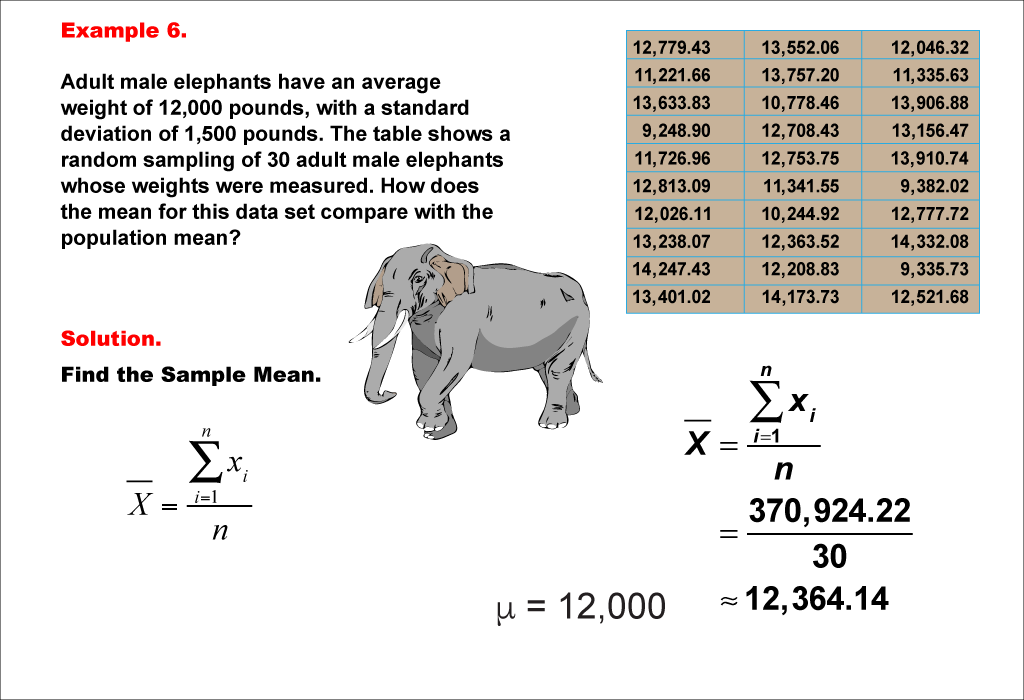
Display Title
Math Example--Measures of Central Tendency--Sample Mean--Example 6
Display Title
Math Example--Measures of Central Tendency--Sample Mean--Example 6

Topic
Measures of Central Tendency
Description
This example demonstrates the calculation of the sample mean for a group of 30 adult male elephants. The image shows a table with the weights of these elephants and the formula for calculating the sample mean. The population of adult male elephants has an average weight of 12,000 pounds with a standard deviation of 1,500 pounds. The sample mean is computed by summing all the weights (370,924.22 pounds) and dividing by the number of elephants (30), yielding a sample mean of 12,364.14 pounds.
Measures of central tendency are fundamental in statistics, providing a way to describe the typical or central value in a dataset. This collection of examples aids in teaching this topic by presenting various scenarios where the sample mean is calculated and compared to the known population mean. By using different populations (trout and macaws in previous examples, elephants in this one), students can see how sample means may vary but generally approximate the population mean across different contexts and scales of measurement.
Offering multiple worked-out examples is crucial for students to thoroughly understand the concept of sample mean. Each example reinforces the calculation process while demonstrating how sample means can differ from the population mean and from other samples. This repetition helps students build confidence in their ability to calculate and interpret sample means across diverse situations and recognize the applicability of this concept to various real-world scenarios, including those involving larger numbers.
Teacher's Script: Let's examine our sixth example of calculating a sample mean. This time, we're looking at the weights of 30 adult male elephants. How is this example different from our previous ones? What challenges might we face when dealing with such large numbers? Let's calculate the sample mean together. How does it compare to the population mean? What does this tell us about the usefulness of sample means across different scales of measurement?
For a complete collection of math examples related to Measures of Central Tendency click on this link: Math Examples: Measures of Central Tendency: Sample Mean Collection.
| Common Core Standards | CCSS.MATH.CONTENT.7.SP.A.2, CCSS.MATH.CONTENT.HSS.IC.B.4, CCSS.MATH.CONTENT.HSS.IC.B.5 |
|---|---|
| Grade Range | 6 - 8 |
| Curriculum Nodes |
Algebra • Probability and Data Analysis • Data Analysis |
| Copyright Year | 2021 |
| Keywords | mean, measures of central tendency, sample mean |